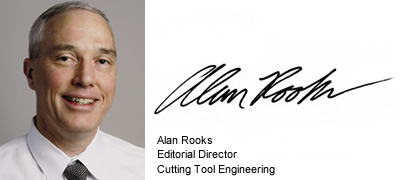Now comes news from Massachusetts that some people appear to be paying closer attention to that message. At a time when some vocational-technical programs are closing due to lack of interest, the Boston Globe reports that thousands are seeking vo-tech classes in the state’s high schools—and being turned away.
The Sept. 15 report by Jonathan Wiggs of the Globe stated that many vo-tech programs across the state have long admission waiting lists, according to a survey by the Northeastern University School of Law. The survey found that at least 3,500 students were unable to get into public vocational schools in the past 2 years. “The [vocational education] system is not valued as much as it should be,” said Don Walsh, of Massachusetts Communities Action Network, in the report. MCAN is a nonprofit advocacy group and requested the Northeastern survey. “The biggest problem manufacturers have is running out of workers.”
Not all reported waiting lists, but 21 of the 31 schools that responded to the survey had one, according to the report. The 35 other vocational and technical schools in Massachusetts did not respond to the survey.
While it would be better to accept all the students who wanted training, the shortage is a hopeful sign that more people are exploring opportunities for employment in manufacturing. With waiting lists like these, perhaps more attention will be paid to the vo-tech training systems in Massachusetts and elsewhere.
Another hopeful sign is that manufacturers are supporting training programs, making them more attractive to potential students. For example, Indiana Technology and Manufacturing Cos., Plymouth, Ind., donated a Zeiss DuraMax coordinate measuring machine to the Precision Tool Manufacturing Training Program, open to students attending Plymouth High School. Zeiss discounted the machine, donated 12 educational licenses for its Calypso software and trained the program’s instructor.
The 1-year-old ITAMCO Manufacturing Center on Plymouth High School’s campus operates the training program. In addition, the North Central Area Vocational Cooperative, a high school education collective in Plymouth, and Ivy Tech Community College, with campuses in northwest Indiana, contribute to the program. NCAVC contributed funds to purchase equipment, and the program’s trainer is an Ivy Tech employee. Students in the ITMACO program receive high school credit and Ivy Tech college credit.
Thirteen students took the Precision Machining I course in the program’s first year. Three of the four seniors who took the course now work at ITAMCO and the fourth is at another area manufacturer.
There’s other good news coming out of Indiana: Ground was broken July 26 for the Gene Haas Training and Education Center in the Lebanon (Ind.) Industrial Park. The 20,000-sq.-ft. facility will open in August 2015 to train new machinists. The center is funded by a $1.5 million grant from the Gene Haas Foundation. (Gene Haas is the founder and president of machine tool builder Haas Automation Inc., Oxnard, Calif.)
Vincennes University will be the training provider at the new center through its Workforce Development and Community Services department. The first students will be enrolled in the 16-week CNC Machinist Now Program, designed primarily for military veterans. They will go from having no experience in machining or manufacturing to, after 600 hours of training on Haas CNC machines, being certified as entry-level machinists with NIMS credentials.
In addition, in July the Gene Haas Foundation donated $500,000 to fund scholarships at Workshop for Warriors, a San Diego nonprofit group that trains veterans for jobs in manufacturing (see CTE Dec. 2013, p. 11). These kinds of public/private partnerships will help narrow the U.S. manufacturing skills gap. There’s obviously a lot more to do, but it’s nice to see some positive change. CTE

Related Glossary Terms
- computer numerical control ( CNC)
computer numerical control ( CNC)
Microprocessor-based controller dedicated to a machine tool that permits the creation or modification of parts. Programmed numerical control activates the machine’s servos and spindle drives and controls the various machining operations. See DNC, direct numerical control; NC, numerical control.
- precision machining ( precision measurement)
precision machining ( precision measurement)
Machining and measuring to exacting standards. Four basic considerations are: dimensions, or geometrical characteristics such as lengths, angles and diameters of which the sizes are numerically specified; limits, or the maximum and minimum sizes permissible for a specified dimension; tolerances, or the total permissible variations in size; and allowances, or the prescribed differences in dimensions between mating parts.







